PayPal-Friendly Hydroponic Supply Stores
Wish to order professional hydroponic gardening and farming systems, growing media, nutrients or a variety of other tools and supplies for your plant growth needs?
The following list contains information about hydroponic supply stores that accept PayPal.
These websites enable private and commercial business customers to order equipment and accessories and use PayPal as their preferred payment method for the goods.

What is Hydroponic Growing?
Hydroponics is a widely used agricultural method, especially in urban areas, which uses no soil as a growth medium. As such, it offers an alternative to conventional soil-based farming and gardening.
The term Hydroponic is stemming from the Latin words hydro, meaning water, and ponos meaning works or labor.
The system’s core principles have been practiced for centuries dating back to ancient cultures and civilizations, such as the Egyptians, Babylonians and the Aztecs.
The technique enables to grow almost all types of terrestrial plants, including fruits, vegetables, herbs and flowers, in a water-based, nutrient rich solution, without using soil.
Instead, the soil-less cultivation utilizes inert growing mediums which are easier for roots to grow through.
In a hydroponic system the medium supports the plant’s weight, anchors it and stabilizes its root system. The nutrients that are needed for plant growth are delivered through the water.
The basic premise behind this method is to use a more efficient way to provide food and water to plants. As plant roots come in direct contact with the nutrient solution, while also having access to oxygen, proper healthy growth is ensured.
Under these circumstances, plants are no longer forced to drain their resources and waste their limited energy developing a huge root system in order to search for water and minerals.
System Types
There are six basic types of hydroponic grow systems and each option has hundreds of different variations and combinations with varying degrees of complexity.
Some products in the market combine different types of methods into one hybrid system.
The difference between the systems’ techniques is the way that they deliver water, nutrients, and oxygen to the plants’ roots.
Each system has its own potential challenges and benefits relating to plant growth and ease of use.
Key factors that influence system choice include what is being grown, how much time can be invested in the project, space availability and budget issues.
The 6 systems are:
- Wick
- Deep Water Culture (DWC)
- Ebb & Flow (Flood and Drain)
- Drip systems
- N.F.T. (Nutrient Film Technique)
- Aeroponics
Growing Medium
Even though growing plants hydroponically is soil-free, it doesn’t mean that there is absolutely nothing to support them.
Most hydroponic growing methods require some sort of medium, which is used to support the plant’s root system and hold them in place by supporting the weight of the plant.
Since different media are appropriate for different growing methods and plants, product selection depends on the actual needs of the specific application.
Each medium possesses different properties but the important ones that need to be carefully considered are water retention, aeration, and pH neutrality.
The following list outlines common types of growing media for hydroponics:
- Rockwool
- Perlite
- Vermiculite
- Expanded clay granules / pellets
- Grow rocks
- Coconut Fiber
- Oasis cubes
- Floral foam
- River rock
- Sand
- Gravel
- Rice hulls
- Pumice
- Wood fiber
Hydroponic Nutrients
In hydroponics, nutrients function as one of the key components of the growing system.
The role of this essential blend of minerals is to replace all of the macro and micro nutrients that are normally found within soil and provide plants with the food they need for strong and healthy growth.
Advantages
- Flexibility: Plants can be grown almost anywhere, including in places without soil or huge farming land and where little light is available.
Urban practitioners of this system can grow produce in greenhouses or even from home, from their rooftops, basements, garages, attics, living rooms or from any other available indoor space. - Water-Saving: Reduced water usage compared to traditional soil based set-ups.
- Sterility: A sterile environment for plant production, which means that no harmful pesticides, fertilizers and other chemicals are used.
- Expedited Growth: Crops grow faster, which leads to early harvesting and a better ability to satisfy the market demand for produce.
- Higher Yields: Hydroponic gardens and farms are far more productive for their size, offering much more produce per every square acre compared to soil-based cultivation.
- Space Saving: It consumes less space, as plants with small roots can be placed and grown closer to each other.
- Water Conservation: This factor is extremely important in drought prone areas or deserts. Since the system can function in a closed loop, water can be recycled and reused multiple times leading to efficiency, conservation, carbon footprint reduction and reduced water costs.
- Better Control: Complete control over nutrient and water delivery, temperature, humidity, light, growing schedule as well as all other aspects of the growing environment and plant conditions.
- No Soil Tasks: Labor intensive work such as mulching, tilling, cultivating, soil changing, fumigation, weeding and other traditional practices are not required.
- Crop Quality: Plants are healthier, carry better nutritional value, contain more vitamin and taste better.
- No Seasonal Restrictions: Production doesn’t need to stop seasonally, since crops can be grown and harvested all year round.
- Less Pests: The control that hydroponics provides reduces the risk of insects and other pests – especially indoors.
Disadvantages
- Start-Up Cost: High initial set-up costs. The necessary professional equipment and supplies require a sizeable investment.
- Supervision: It requires continuous monitoring and supervision.
- Power: Vulnerability to power outages.
- Diseases: Waterborne diseases can spread quickly. Water supplies must be always guarded from bacteria and other contaminants.
- Knowledge: Extensive technical training is required for successfully growing plants and maintaining the equipment.
- Production: Limited production in comparison to huge fields.
Uses
Given the right setup and nutrient balance, hydroponics can be used to successfully grow a wide range of fresh vegetables, fruits, medicinal and seasoning herbs, flowers, foliage and plants.
Hydroponic gardening and farming systems can be tailored to meet the needs of almost any growing application, however, some crops are more ideal for this soil-free growing technique than others.
What Do Hydroponic Supply Websites Offer?
Hydroponic supply retailers are primarily engaged in offering hydroponic horticulture equipment, supplies and accessories for indoor, outdoor and greenhouse growers.
Such shops serve a diverse customer base, from gardening beginners and DIY hobbyists to seasoned agriculture experts and full-time commercial farmers.
Such items include:
- Hydroponic Growing Systems
- Grow Boxes
- Grow Tents & Cabinets
- Grow Rooms
- Kits
- Trays & Reservoirs
- Pumps & Irrigation Supplies
- Containers & Pots
- Plant Nutrients & Supplements
- Growing Media
- Testing & PH Control
- Lighting
- Climate Control Systems
- Pest & Disease Control
- Cloning & Propagation
- Reflective Films
- Accessories & Tools
Paying for Hydroponic Supplies with PayPal
Even though PayPal is one of the most popular payment methods on the internet, many hydroponic equipment shops have not adopted it yet.
However, a fair number of players in this market do accept PayPal and hopefully, their number will increase with time.

